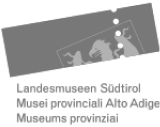Roberta Dapunt, Eduard Demetz and Alma Vallazza are affiliated in an amicable collaboration. Eduard Demetz has created musical compositions for Dapunt’s poetry, including Nauz, which tells of the slaughter of the pig on the farm in winter. Alma Vallazza has translated texts by Dapunt into German, including Synkope/Sincope (2021 Folio Verlag). This book is presented spatially at the Fort Biennale 01, since it resonates with the theme of the “body of language”, as does her entire oeuvre. Among other things, the talk with reading will be about on how the body of language is transferred into the body of music and which artistic considerations and discourses nourish the collaboration between Dapunt and Demetz. During and after the conversation Roberta will read poems she has chosen from various creative periods on the theme “In the body of language” and in various languages (Italian, German, Ladin). Finally, Stefan Fraunberger will explore geographical sonic interspaces with his electronically amplified hammered dulcimer.
PROGRAMME
Talk
Roberta Dapunt (Poet)
Eduard Demetz (composer)
Moderation: Alma Vallazza (translator)
Reading
Roberta Dapunt
Concert
Stefan Fraunberger
Hammered dulcimer, electronics
Stefan Fraunberger, composer and artist, plays a purely tuned electromagnetic dulcimer to explore sound incantations, electronic country dances and spectral spatial landscapes. He uses the hammered dulcimer as a transcultural stringed instrument that is played in various forms and tunings from the Himalayas to the Alps. As the ancestor of the piano, it plays an important role in various folk musics of the regions once part of the former Austro-Hungarian monarchy as well as in classical Ottoman and Persian musical styles. It is not the museum of tradition, but the resulting possibilities and current areas of tension that are the focus of Fraunberger’s sonic interest.
“In the section Il corpo della musica (The Body of Music), in the essay The Obvious and the Obtuse, Roland Barthes writes: “Hearing is a physiological phenomenon, listening is a psychological act.” Music, therefore, springs from the body through the mouth and through the sounding of an instrument—requiring not just the body of the listener, in order to be heard, but also the willingness to listen. In this way, an encounter takes place between two bodies, both distinct from each other and each drawing first and foremost from themselves. In this respect, poetry is no different; even its linguistic component, given to the inner voice of reading, requires a performance of which the instrument is the human voice, albeit a silent voice; an inner voice. It is the language of sounds, even the silent ones, which music and poetry are nurtured by, accounting for each note and revealing its values.”
Roberta Dapunt
In German and Italian
